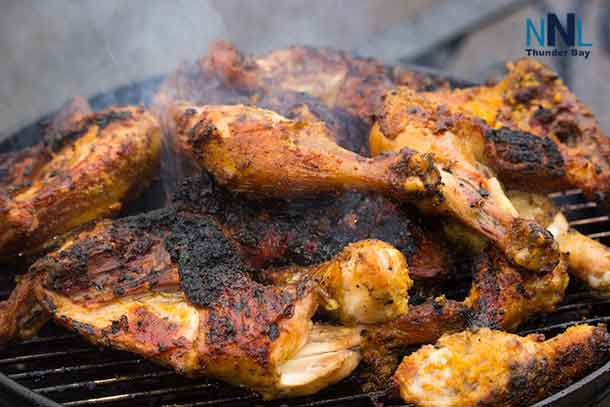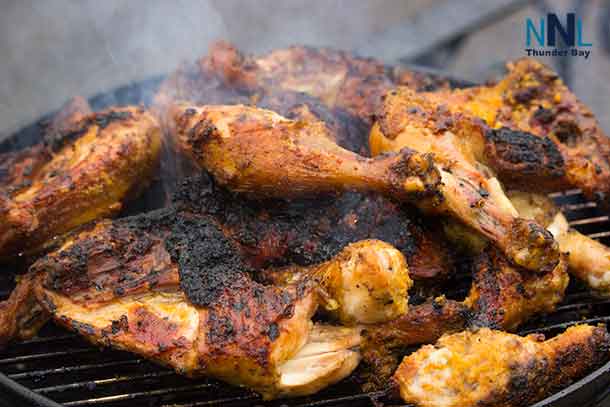
Basic Rules of Food Safety Can Help You Enjoy Your Summer Meals
THUNDER BAY – As you enjoy picnics and barbecues in your back yard, on camping trips or at the cottage with friends and family this long weekend, Dr. Eric Hoskins, Minister of Health and Long-Term Care, and Dr. David Williams, Ontario’s Chief Medical Officer of Health, are reminding you to take steps to stay safe from foodborne illnesses.
Food poisoning cases increase during the summertime. Following these four basic rules of food safety can help you enjoy your summer meals:
- Clean your hands, surfaces and equipment thoroughly with warm soapy water. Bacteria can get onto hands, cutting boards, knives, dishcloths, countertops and the food itself.
- Separate raw meat, poultry and fish from ready-to-eat foods, such as vegetables and fruits, during both storage and preparation to prevent the spread of bacteria.
- Cook your food thoroughly, especially meat and poultry.
- Chill your foods and leftovers to four degrees Celsius or lower within two hours of purchase or preparation, especially for high-risk foods like meat, poultry, fish, eggs and dairy products.
To further reduce the risk of food poisoning, here are more food safety tips when you’re entertaining this summer:
- Use a food thermometer to check if food has been cooked to the correct temperature.
- Don’t keep food at room temperature for more than two hours on summer days.
- Never defrost food on the kitchen counter before cooking. Thaw meat safely in the fridge or under cold running water to avoid the growth of bacteria on surfaces in your home that can make you and your family sick.
- Package raw meats and poultry securely and place them at the bottom of your cooler or fridge to prevent juices from dripping onto ready-to-eat foods.
- Follow all cooking instructions carefully.
If you, or anyone you know, experience signs or symptoms of food poisoning, please contact your doctor. Symptoms may include nausea, vomiting, diarrhea, fever, stomach cramps and stomach pain.
Following food safety rules and tips will help to ensure you, your family and your friends can enjoy your summer cooking.
QUICK FACTS
- According to Public Health Ontario, it is estimated that over 100,000 cases of foodborne illness occur in Ontario each year.
- The risk of food poisoning increases during the summer because harmful bacteria grow quickly in warm, moist conditions.
- Food poisoning can vary from minor to severe, with symptoms appearing from hours to weeks after eating contaminated food.
- Young children, the elderly, pregnant women and people with weakened immune systems are at greatest risk of suffering from serious cases of food poisoning, which can cause paralysis, double vision, difficulty swallowing and breathing, and even death.
- Health Canada has also warned people to be careful when using BBQ brushes with wire bristles, as there is a risk of the bristles becoming loose and getting into food. Make sure to inspect your brushes before use and throw them away if you notice bristles falling off.







